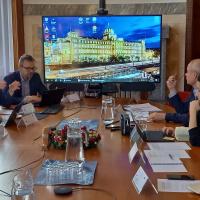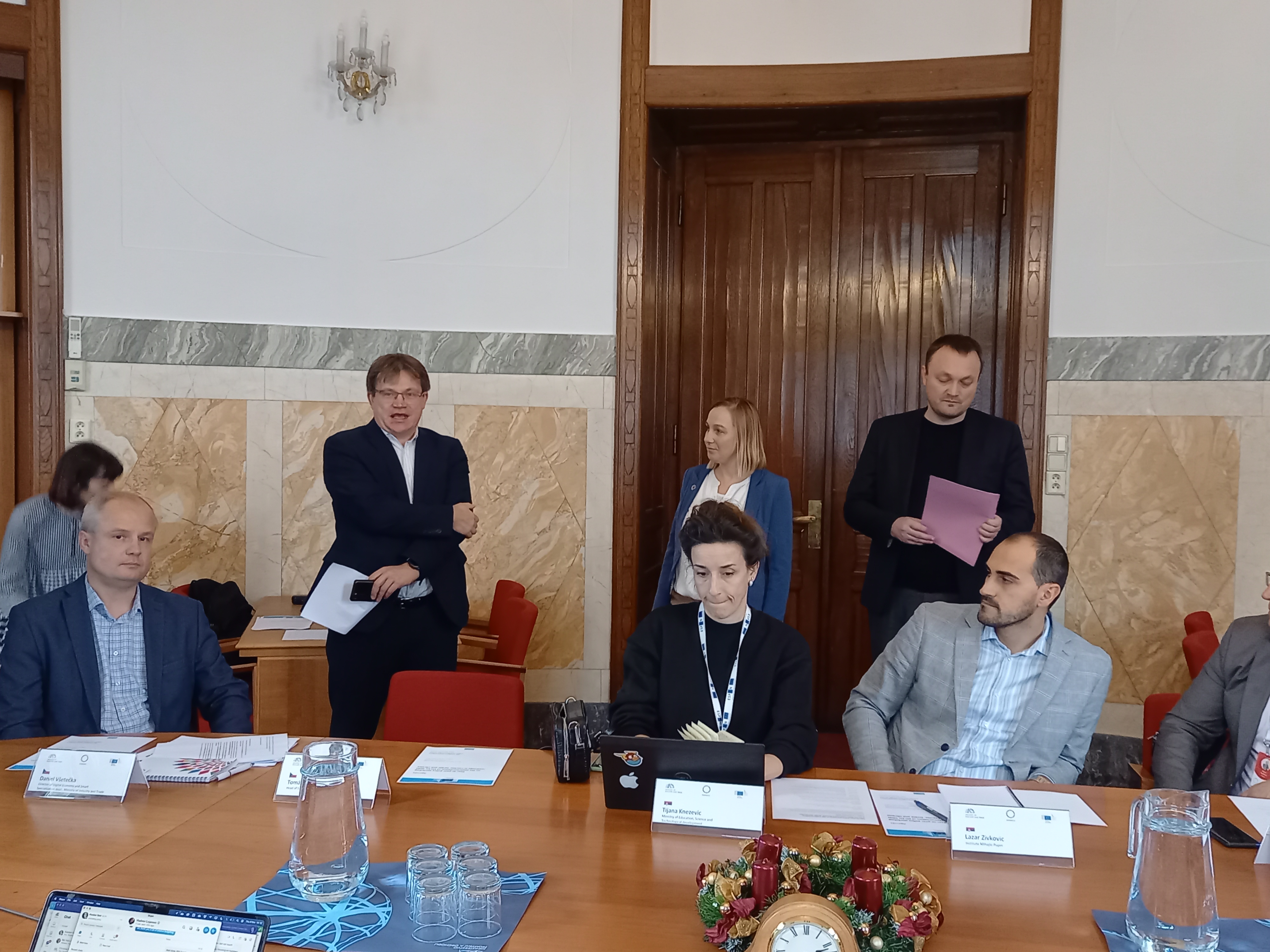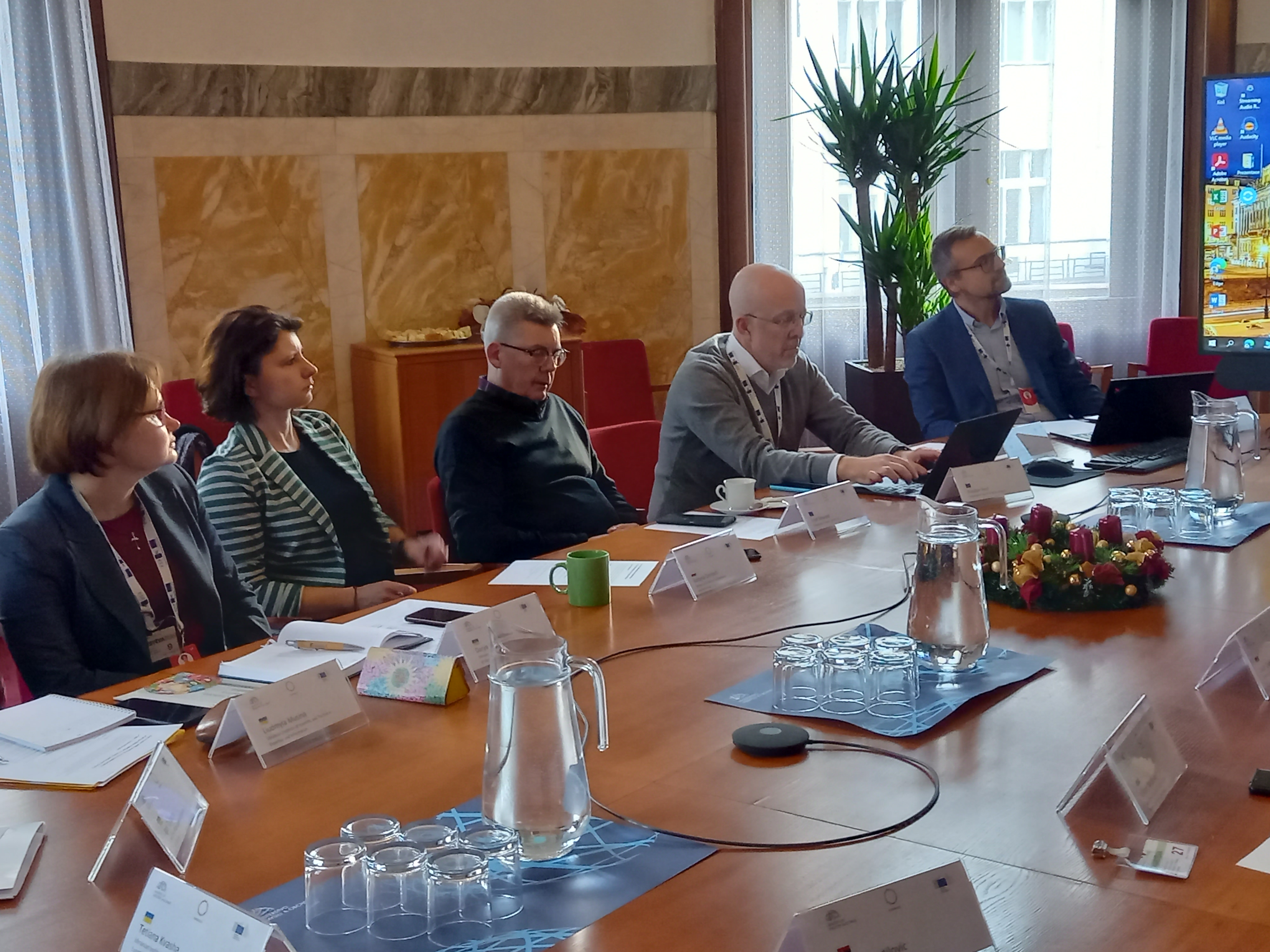
On December 8, 2022, the Ministry of Industry and Trade of the Czech Republic hosted almost 20 experts in smart specialization from the Czech Republic, Ukraine and Serbia at a peer-to-peer seminar on the implementation of STI (Science, Technology, Innovation) for the fulfillment of the Sustainable Development Goals (SDGs).
The workshop was part of a large international project managed by the JRC EC, which sought a framework for adapting the concept of research and innovation smart specialization (RIS3) to meet the Sustainable Development Goals. The project reflected the UN activity called STI4SDG Roadmap, which allows states and regions to create their own road map to use science, technology and innovation to fulfill the goals of sustainable development, taking into account regional needs and specifics.
Monika Matusiak and Michal Miedzinski participated on behalf of the JRC EC, who, together with other authors, prepared the summary report Enhancing the sustainability dimension in Smart Specialization strategies: a framowork for reflection. Experts for the conceptual setting of the new approach to innovation policy, Fred Steward and Alasdair Reid, were also presented. JRC EC as well as the MIT cooperate closely wirh them.
At the beginning of the seminar, Petr Očko, Deputy Minister of Industry and Trade, greeted the foreign guests. "Sustainability is increasingly coming to the forefront of all concepts and strategies, and therefore it is logical that technological progress based on research results must also respond to this trend", he said, adding that innovation policy will be increasingly linked to the impact of new solutions on society and human beings, therefore technical and product innovations cannot be separated from societal innovations. States have chosen different approaches to incorporate sustainability into their strategies, the Czech Republic has chosen a so-called mission-oriented approach, while Ukraine and Serbia have incorporated the SDGs directly into the smart specialization strategy. It will certainly be interesting to exchange opinions and share experiences from these approaches.
Monika Matusiak started the workshop with the statement that each of the participating states was looking for its own specific way to involve science, technology and innovation in the fulfillment of those sustainable development goals that are highly relevant for the given state due to its specific conditions.
Serbia has embarked on a large-scale reform of the research and innovation ecosystem and implemented two parallel processes: the creation of a smart specialization strategy and the implementation of the STI4SDG Roadmap pilot project in the conditions of Serbia. To identify the relevant SDGs, consultations were used with experts from industry, universities, public institutions and the civil sector, who selected SDGs directly or indirectly influenced by research and innovation topics from the RIS3 strategy. Based on the intersection of RIS3 topics and selected SDGs, indicators were then proposed for monitoring the fulfillment of the roadmap goals.
Ukraine has specified SDGs at the national level, to achieve which it is necessary to use science, technology and innovation. To define the STI4SDGs Roadmap, it used the UN methodology, which recommends implementing the process in several consecutive steps. More than 1,500 scientific experts from areas important to Ukraine participated in the opening expert debates. The set of proposals was then organized into 7 groups that contained strategic research topics including their link to the corresponding SDGs.
The Czech Republic chose a different approach for modifying the strategy of smart specialization towards higher sustainability (transformation of S3 to S4). Already at the time when the structure of RIS3 was being prepared into standard horizontal and vertical priorities (domains of specialization), it was assumed that new social challenges and requirements for their solution would appear during the implementation. That is why the RIS3 strategy also included an element of missions, which are targeted multidisciplinary interventions aimed at solving a specific societal challenge with the tools of research and innovation. The Czech Republic has prepared a proposal for two missions: Streamlining the economy's material, energy and emission intensity and Strengthening society's resistance to security threats. (More about RIS3 missions here).
The discussion on individual approaches was very inspiring for all participants, including the project managers from JRC EC. Changing the design of innovation policy is challenging and requires the involvement of many stakeholders, whose partial priorities and goals are often different. Therefore, it is necessary to constantly seek consensus and find agreement on what is important and beneficial for a given state or region.

